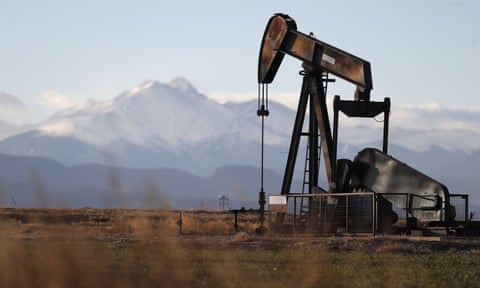
Your weekly guide to Sustainable Investment
Upcoming TBLI Events
Wealth & Society Summit 2024
Powered by TBLI Group.
Confirmed speakers:
- Guneet Banga
- Guido Boysen
- Marlene Engelhorn
- Barney Swan
- Daniel Aaxman
- Robert Boogaard
- Martin Palmer
- Kateryna Filippi
- Maximilian Graf von Maldeghem
- Gregorio Marini Clarelli
- Helen Crowley
- Emmanuelle Ghislain
- Tim Coles
- Octavaria Graf Pilati
Sept, 26-27 Vienna, Austria
More info & registration page
Would you like to watch a recording of a past TBLI Talk event? Visit this page
TBLI Radical Truth Podcast
Why is impact reporting critical to success /w Sara Olsen

How do you get professionals doing high quality impact accounting and management quickly?
SVT Group works with firms with a business metabolism and an impact focus, like Techstars’ Workforce Development Accelerator (US), Mission Driven Finance (US), Angels of Impact (Singapore), and Happiness Capital (Hong Kong), which seek to support scalable, innovative companies whose work also creates a happier, more equitable and sustainable world. Sara champions the impact management profession including through her work as Director & Methodology Committee co-chair at Social Value International, who are "working to change the way society accounts for value."
What will you learn?
- How to measure and verify the social impact?
- Why impact accounting is essential to to drive financial performance
- How accountants might just save the world TBLI is the world's leading ESG/Impact Investing network/authority. We have been educating, advising, and connecting investors for 25 years
Listen to the full podcast
Banks have given almost $7tn to fossil fuel firms since Paris deal, report reveals

Among world’s top 60 banks those in US are biggest fossil fuel financiers, while Barclays leads way in Europe
The world’s big banks have handed nearly $7tn (£5.6tn) in funding to the fossil fuel industry since the Paris agreement to limit carbon emissions, according to research.
In 2016, after talks in Paris, 196 countries signed an agreement to limit global heating as a result of carbon emissions to at most 2C above preindustrial levels, with an ideal limit of 1.5C to prevent the worst impacts of a drastically changed climate.
Many countries have since promised to reduce carbon emissions, but the latest research shows private interests continued to funnel money to oil, gas and coal companies, which have used it to expand their operations.
Eight in 10 of the world’s most eminent climate scientists now foresee at least 2.5C of global heating, according to the results of a Guardian survey published last week – an outcome expected to lead to devastating consequences for civilisation.
Researchers for the banking on climate chaos report, now in its 15th edition, analysed the world’s top 60 banks’ underwriting and lending to more than 4,200 fossil fuel firms and companies causing the degradation of the Amazon and Arctic.
Those banks, they found, gave $6.9tn in financing to oil, coal and gas companies, nearly half of which – $3.3tn – went towards fossil fuel expansion. Even in 2023, two years after many large banks vowed to work towards lowering emissions as part of the Net Zero Banking Alliance, bank finance for fossil fuel companies was $705bn, with $347bn going towards expansion, the report says.
US banks were the biggest financiers of the fossil fuel industry, contributing 30% of the total $705bn provided in 2023, the report found. JP Morgan Chase gave the most of any bank in the world, providing $40.8bn to fossil fuel companies in 2023, while Bank of America came in third. The world’s second biggest financier of fossil fuels was the Japanese bank Mizuho, which provided $37.1bn.
London-based Barclays was Europe’s biggest fossil fuel financier, with $24.2bn, followed by Spain’s Santander at $14.5bn and Germany’s Deutsche Bank with $13.4bn. Overall, European banks stumped up just over a quarter of the total fossil fuel financing in 2023, according to the report.
Tom BK Goldtooth, the executive director of the Indigenous Environmental Network, which co-authored the study, said: “Financiers and investors of fossil fuels continue to light the flame of the climate crisis. Paired with generations of colonialism, the fossil fuel industry and banking institutions’ investment in false solutions create unlivable conditions for all living relatives and humanity on Mother Earth.
“As Indigenous peoples, we remain on the frontlines of the climate catastrophe, and the fossil fuel industry targets our lands and territories as sacrifice zones to continue their extraction. Capitalism and its extraction-based economy will only perpetuate more harm and destruction against our Mother Earth and it must come to an end.”
Read full article
Michigan wants fossil fuel companies to pay for climate change damages

Harms include severe weather, crop failures, and economic hits from lack of ice and snow.
Michigan Attorney General Dana Nessel announced Thursday that she plans to sue fossil fuel companies for knowingly contributing to climate change, harming the state’s economy and ways of life.
“It’s long past time that we step up and hold the fossil fuel companies that are responsible for all these damages accountable,” she said.
With this litigation, Michigan would join dozens of local, tribal, and state governments that have taken similar steps to try to make the industry pay for climate damage.
Nessel said the case is an effort to recover some of what Michigan has lost due to climate change, pointing to severe weather events, risks to agriculture, and last winter’s short ski season and canceled sled dog races.
The department is asking outside lawyers to submit proposals to help with the case, which Nessel said could potentially bring billions to the state to address damages from climate change. Attorneys and law firms can submit proposals through June 5.
“A case like this is exhaustive in nature,” she told Interlochen Public Radio. “You’re going after Big Oil, so you need to have some support in terms of additional attorneys and support staff.”
Investigations in 2015 from Inside Climate News and the Los Angeles Times showed that companies like Exxon knew about the dangers of greenhouse gas emissions for decades, but minimized those threats.
Last month, the House Committee on Oversight and Accountability referenced that reporting, saying that its own nearly three-year-long investigation gave a “rare glimpse into the extensive efforts undertaken by fossil fuel companies to deceive the public and investors about their knowledge of the effects of their products on climate change and to undermine efforts to curb greenhouse gas emissions.”
For instance, ahead of a recent congressional hearing, newly revealed documents showed that BP executives knew natural gas was contributing significantly to climate change but promoted it as a “bridge” fuel to replace coal.
Asked about Michigan’s plans to sue, Ryan Meyers, the American Petroleum Institute’s senior vice president and general counsel, said in an emailed statement that it is part of an “ongoing, coordinated campaign to wage meritless, politicized lawsuits against a foundational American industry and its workers.” Meyers added that climate policy should be handled in Congress, not the courts.
The attorney general’s department is working with state agencies to assess the impacts of climate change in Michigan.
Nessel said the state has successfully pursued similar legal efforts in the past, including against the opioid industry and chemical manufacturers that produce PFAS.
UK Treasury Collects £52.5 Billion from Environmental Taxes in 2023

According to the latest Office for National Statistics (ONS) data, the UK's environmental and climate-related taxes have rebounded to pre-pandemic levels, generating a substantial £52.5 billion in 2023, a nearly 5% increase from the previous year.
The recent ONS report, released yesterday, categorizes these taxes into three main sectors: energy, transport, pollution, and resources. It includes revenue from various levies such as Fuel Duty, Air Passenger Duty, and the UK Emissions Trading Scheme (ETS). The ONS employs an internationally recognized definition of environmental taxes to mitigate adverse ecological impacts directly. Notably, this definition excludes charges incentivizing positive environmental actions, like clean air zone fees or the single-use plastic bag levy. However, this may be subject to future revision.
In 2023, the bulk of these tax revenues, about 75%, came from energy-related taxes, with transport taxes contributing 22.5% and pollution and resource levies making up 2.4% of the total. Despite the freeze on Fuel Duty for over a decade and repeated postponements of increases by various Chancellors, it remained the largest source of environmental tax revenue, accounting for 63.2% within the energy category. The ETS and Renewable Energy Obligations collectively contributed another 33.5%.
However, there was a decline in total revenue from taxes on pollution and resources since 2022, driven by a decrease in the UK's Landfill Tax and the Aggregates Levy, which overshadowed gains from the Plastics Packaging Tax.
On a household level, the average environmental tax contribution rose from £575 in 2020 to £623 in 2021. Yet, as a percentage of the UK's gross domestic product (GDP) and total tax revenue, environmental tax income has remained relatively constant in recent years, stabilizing after a drop from the levels recorded between 2009 and 2019.
Steve Gough, CEO of Valpak, the UK's largest packaging recycling regulations compliance scheme owned by Reconomy, highlighted that these figures indicate a return to pre-pandemic levels for UK environmental tax revenues.
He advocates that environmental taxes and levies could significantly boost the UK's development of a sustainable, circular, and net-zero economy.
"As demand and consumption will only keep rising, increasing circularity where waste is reduced and conserving finite resources will be key to meaningfully reducing the amount of CO2 produced by economic consumption and reaching net zero targets in a cost-effective way," he said.
"Government policy is one lever to achieve this while we hope that embedding long-term positive behaviours from businesses in the UK will further support more efficient resource management. Businesses that are prepared to embed circularity at the heart of their model can drive positive environmental change, reduce costs such as taxation, and lay the foundation for future, sustainable economic growth."
Italy, EU joy and sorrow for renewables: “Leader in clean technologies” but still “very dependent” on fossil fuels

In 2022, 79 per cent of the gross energy available in Italy still came from fossil fuels. But the Boot is "among the top two largest producers within the EU" of solar photovoltaic components
Brussels – The European Commission takes stock of the two-year implementation of the RePowerEu energy plan, unveiled on May 18, 2022, amid the energy crisis driven by Russia’s war in Ukraine. Italy faces a paradoxical dilemma: “One of the leading markets in clean technologies” but still “very dependent on fossil fuels.” Which, in 2022, was 79 per cent of the boot‘s gross available energy.
In the report dedicated to Rome, the EU executive first points out that between August 2022 and January 2024, Italy reduced gas consumption by 17 per cent. A result that, although below the average reduction of 18 per cent recorded at the EU level, achieves the voluntary demand reduction target of 15 per cent set by Brussels. It is far behind Denmark (-40 per cent) but better, among others, than Germany (-16 per cent), Belgium (-16 per cent) and Spain (-12 per cent).
But the road to climate neutrality is long and winding: Italy is still “very dependent on fossil fuels,” especially gas coming from the Kremlin. “Historically, Russia has been the largest supplier to Italy,” the Commission report notes, and was 40 per cent of total gas imports in 2021. Since the start of the war in Ukraine, Italy has managed to reduce dependence on Russian gas by up to 19 per cent and “aims to phase it out” by 2025.
Things are better in the production of clean energy. In 2023, Italy installed about 5.7 GW of electrical capacity from renewables, bringing the total to 65.2 GW. Here, Rome seems to have shifted gears: again, in 2023, the annual growth rate of renewable energy capacity installation rose to 9.5 per cent, up from 2.5 per cent in 2021. “Italy remains one of the leading markets in clean technologies, hosting a substantial number of wind and solar photovoltaic power generation facilities,” the Commission points out. As for the production capacity of solar PV components, more than 22 per cent of the share of building-integrated PV produced by the EU comes from Italy, and Italy is “among the top two largest producers within the EU”.
The Commission places significant expectations on the implementation of the National Recovery and Resilience Plan: “With the need to prioritize further infrastructure investments, Italy is upgrading its electricity grid to accommodate a greater share of renewable energy,” the report notes. Investments that will come “thanks to its NRRP.” Also mentioned is the Superbonus in the section on energy efficiency measures: “Tax deduction schemes for building renovations, energy efficiency and renewables advanced in 2023,” Brussels notes. According to data compiled by the Commission, by the end of 2023, the 110 per cent Superbonus for residential buildings has achieved 494,406 energy renovations (of which 26.7 per cent were condominium buildings).
Source
Fast fashion is wasteful, and thrifting is flawed. The solution: swap!

Jannine Mancilla, 32, and Nicole Macias, 34, bonded over a shared love of DIY fashion and hand-me-downs, and frustrations with an environmentally destructive industry and a throwaway culture that creates huge amounts of waste. So they came up with a radical idea: asking people to offer up their old clothes – for free. Their Los Angeles clothing swaps have grown from humble origins to “overwhelmingly” popular events that receive hundreds of pounds of clothing donations each month, helping attendees save the planet and keep money in their pockets.
Jannine Mancilla: All of us at Radical Clothes Swap are first-gen Mexican American and grew up with an immigrant, sparse mentality. I grew up with hand-me-downs from my siblings and cousins. We had that cookie container that never had cookies in it, that we would reuse to hold a sewing kit. I grew up mending my own pants. When skinny jeans were a thing, I would sew them by hand.
Nicole Macias: I still get my brothers’ hand-me-downs. There’s nothing like a beat-up old shirt or a sweater to sleep in or just hang around in. Bipoc communities have always done this because we’re resourceful. It was ingrained in our upbringing and our lifestyle. A lot of times we’ve had to, because we couldn’t afford to buy new wardrobes every new school year.
In 2021, I was invited to participate in a back-to-school community event for young people, and I thought about what I could bring that wouldn’t require the kids to spend money. I had been inspired by a company called Suay Sew Shop that does textile repurposing and has a free rack at their store.
I was blown away by that concept – you could just grab a sweater off a rack and it’s free. So I decided to have a free rack at the back-to-school event. I donated five items from my own closet and did a shout-out on social media asking people for clothes they wanted to get rid of.
The response was overwhelming. I got all types and sizes of clothing: pyjamas, winter coats, jeans, dresses, shorts, workout clothes, you name it. I couldn’t even fit all the bags in my car and had to borrow a friend’s catering van to haul everything with me.
After that I did four more swaps and ended up with more and more clothes. Jannine, who I’d never met, hit me up on social media and she was like: “Hey, I like what you’re doing. I’ve done this before. Do you want to team up?” I had already agreed to a community event in [the Los Angeles neighborhood of] Inglewood and told her to come. She was like: “Yeah, let’s do it.”
I showed up with my clothes, my wagon and some hangers. Jannine showed up with a canopy and a table and some hangers. We were hanging clothes from the canopy. It was so ugly, but people loved it.
Jannine: People were so thrown off by the concept that it was all free.
We are ruled by capitalism, and if people aren’t profiting, they don’t take an interest in it. Giving out something for free without expecting anything in return is radical.
Read full article

